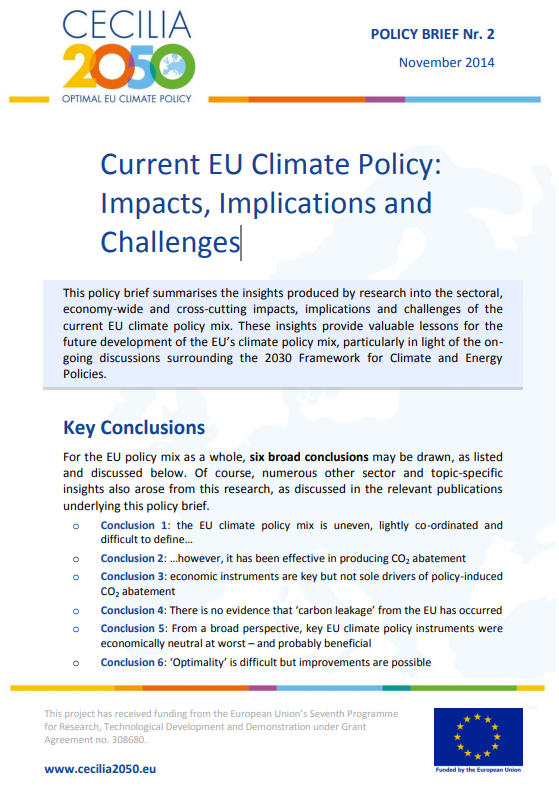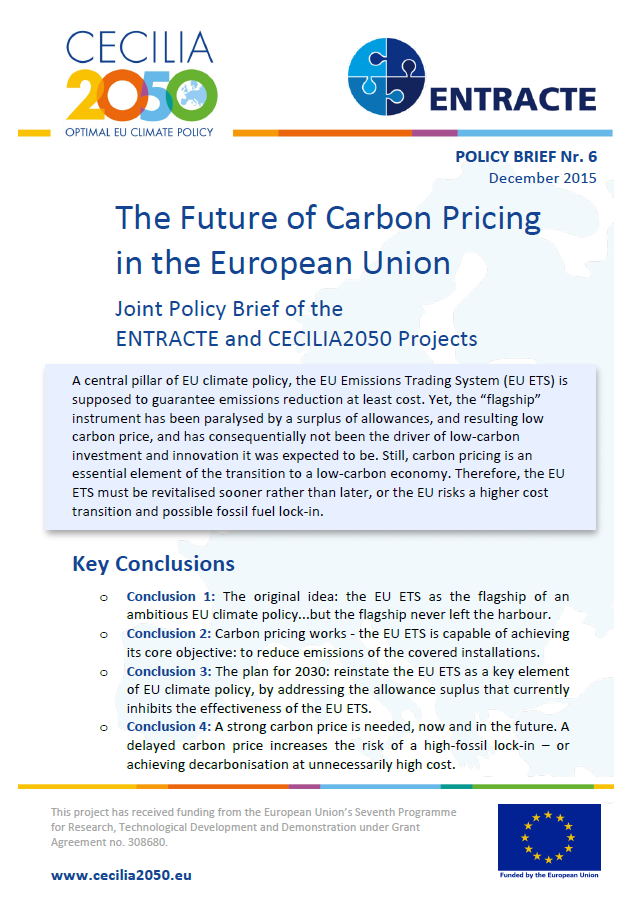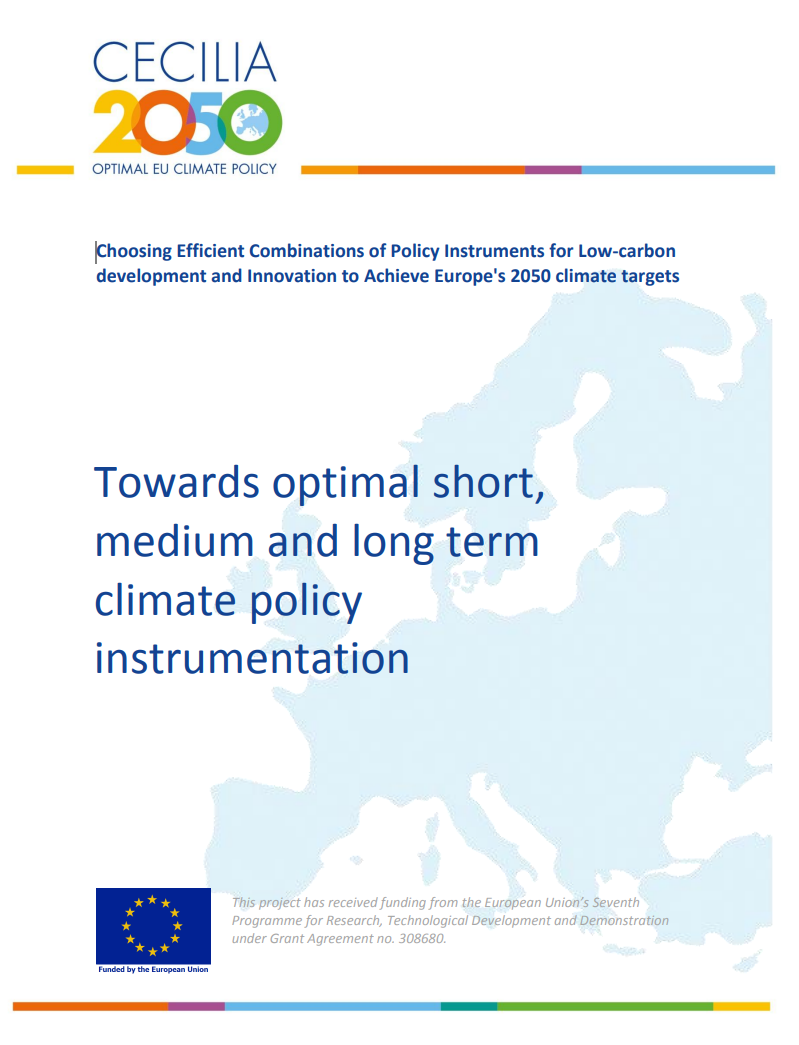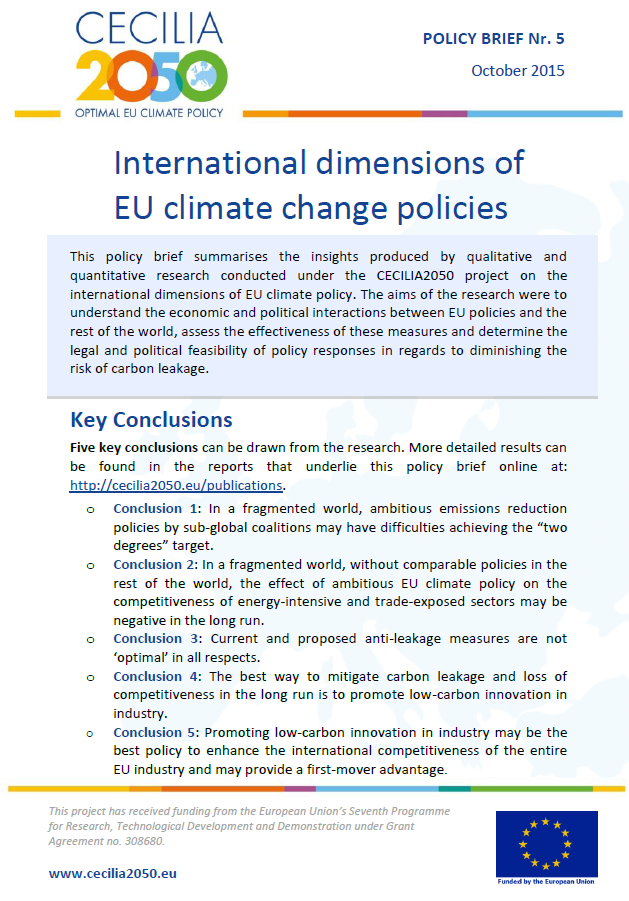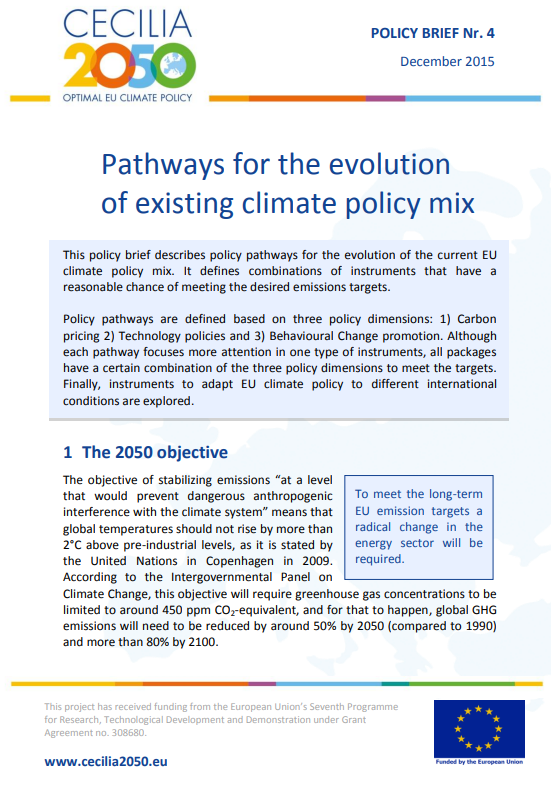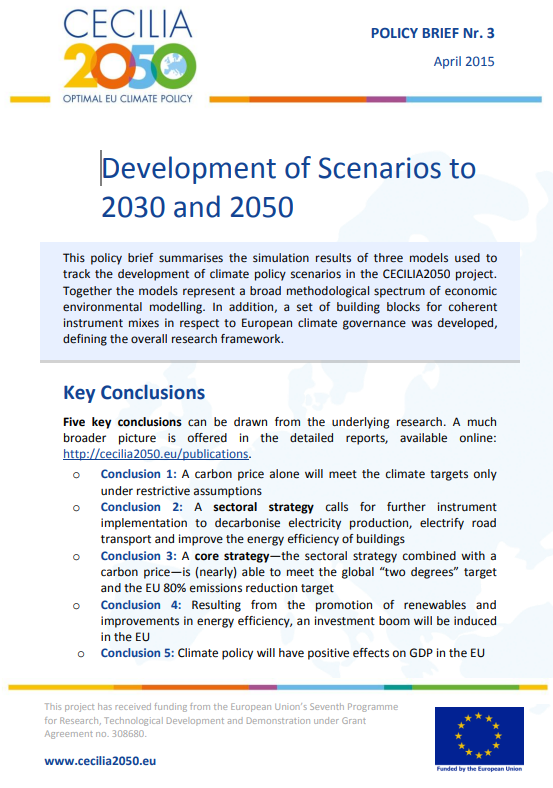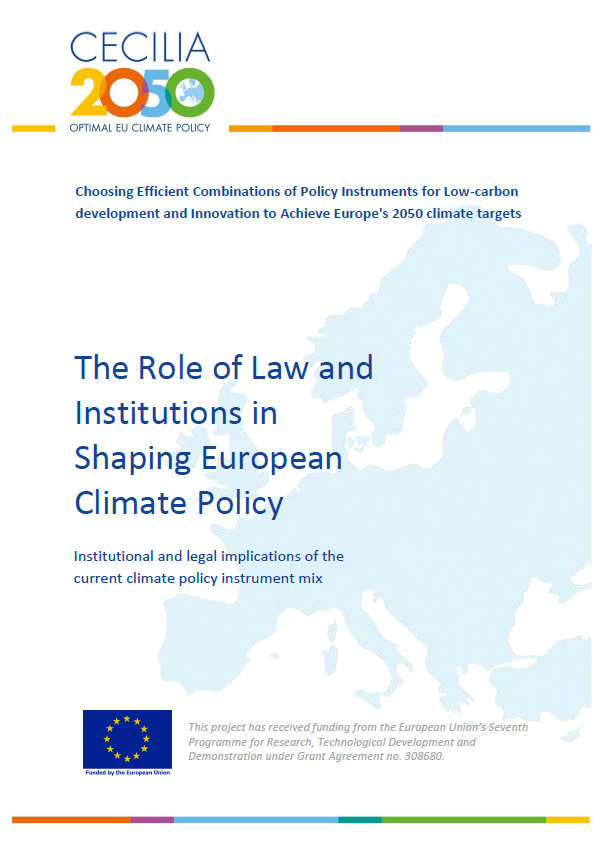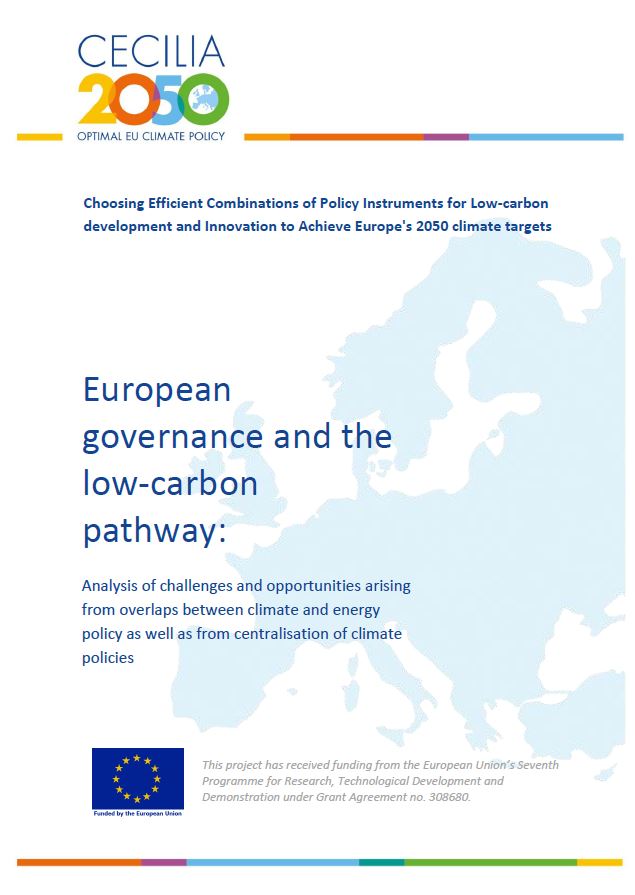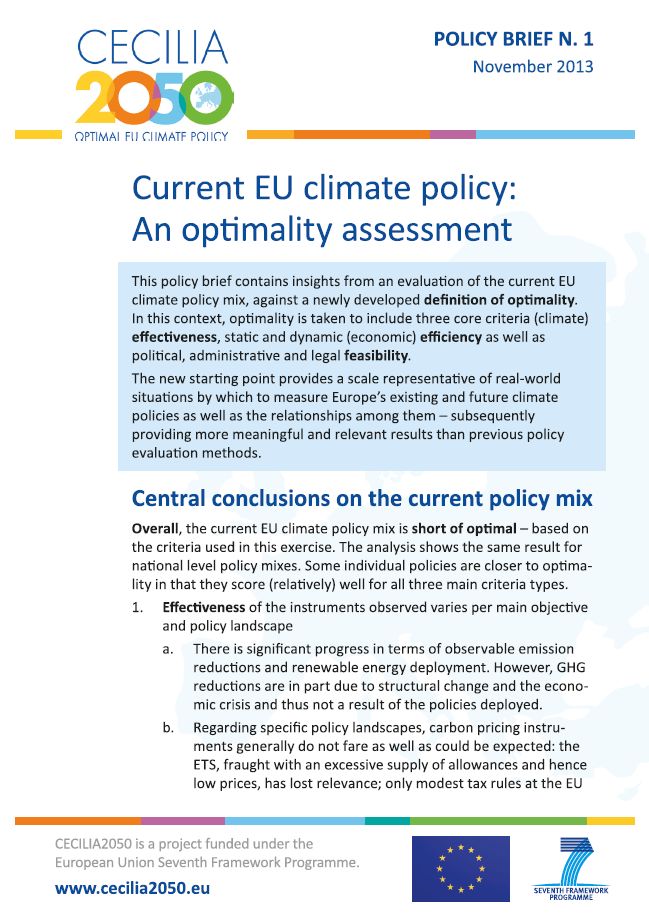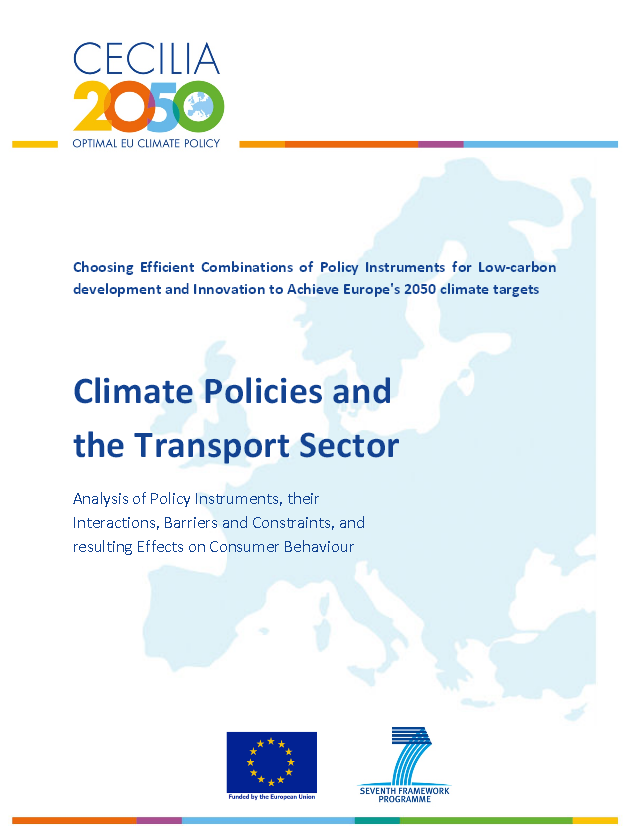Current EU Climate Policy: Impacts, Implications and Challenges
CECILIA2050 Policy Brief No 2
- Publication
- Citation
Consortium, CECILIA2050 Project 2014: Current EU Climate Policy: Impacts, Implications and Challenges. Policy Brief.
After taking stock of the current EU policy mix, the CECILIA2050 consortium conducted a second series of studies on the sectoral impacts and limitations of the existing climate policy instruments. The sectors that were analysed include power, building, transport, cement and steel as well as the food and agricultural sector. In another cross-sectoral study, members of the CECILIA2050 consortium assessed through interviews with industry representatives of key EU sectors to what extent energy and environmental policy instruments have been relevant forces behind the adoption of environmental innovations in the EU.
Research was also conducted on the effects of the current policy mix on economic activity as well as on international competitiveness and markets, while two other studies assessed the role of law and institutions in shaping European climate policy and the factors that influence the public acceptance of climate policies.
The second policy brief thus summarises the insights produced by the research into the sectoral, economy-wide and cross-cutting impacts, implications and challenges of the current EU climate policy mix. These insights provide valuable lessons for the future development of the EU's climate policy mix, particularly in light of the on-going discussions surrounding the 2030 Framework for Climate and Energy Policies.
For the EU policy mix as a whole, six broad conclusions may be drawn, as listed below:
- Conclusion 1: The EU climate policy mix is uneven, lightly co-ordinated and difficult to define…
- Conclusion 2: …however, it has been effective in producing CO2 abatement.
- Conclusion 3: Economic instruments are key but not sole drivers of policy-induced CO2 abatement.
- Conclusion 4: There is no evidence that 'carbon leakage' from the EU has occurred.
- Conclusion 5: From a broad perspective, key EU climate policy instruments were economically neutral at worst – and probably beneficial.
- Conclusion 6: 'Optimality' is difficult, but improvements are possible.
Of course, numerous other sector and topic-specific insights also arose from this research, as discussed in more detail in the relevant publications underlying this policy brief and in a more comprehensive synthesis report.
